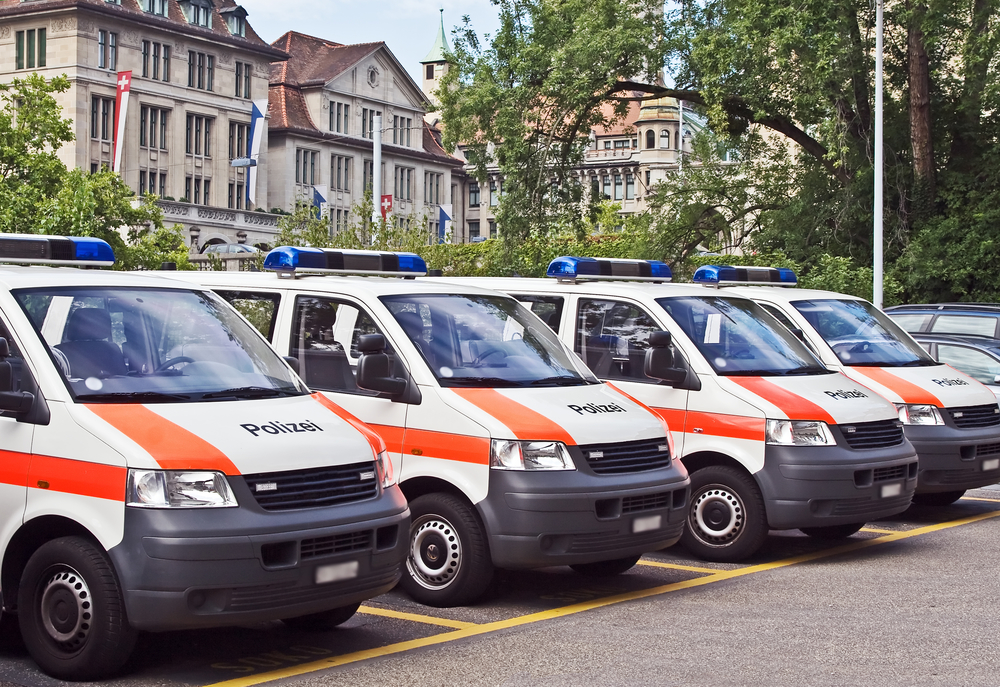"Safety 2019": Police enjoy the highest level of trust
The Swiss electorate is much more pessimistic about the global political situation than in 2018, but the future of Switzerland continues to be viewed optimistically and "your friend and helper" enjoys the highest level of trust. These are the findings of the "Security 2019" study.

According to the study "Safety 2019" of the Military Academy at the ETH Zurich and the Center for Security Studies, ETH Zurich, 73% (previous year: 68%) of the respondents were pessimistic about the development of the global political situation. For the first time, the reasons for this assessment were also surveyed as part of the study. Voters primarily cited the power politics of the major powers - the USA, China and Russia. These states are also rated as untrustworthy. The USA is considered trustworthy by 28% of respondents, China by 22% and Russia by 16%. It is striking that U.S. President Donald Trump is frequently mentioned by name as the cause of the pessimistic assessment. Respondents often do not trust political leaders in other countries and complain that they only look out for themselves and do not care about their populations. Rising nationalism and right-wing populism are cited as the third (main) reason for the pessimistic assessment. A slim majority of 53% share the view that U.S.-Swiss relations have remained the same over the past year. A minority of 38% express the opinion that they have worsened, and only 3% see them as having improved. 57% of the Swiss believe that the USA is a reliable trading partner for Switzerland. However, 57% are also convinced that current US policy is damaging the Swiss economy.
Optimistic for Switzerland
For Switzerland, on the other hand, optimism about the future among respondents remains virtually unbroken at 86% (previous year: 87%). Respondents primarily cite the good economic situation and Switzerland's political system as reasons for this. They also mention direct democracy, the Federal Council, the Swiss education system and the social systems. Many respondents also speak positively about the trustworthy fellow citizens. The good security situation in Switzerland, both with regard to terrorist, war and criminal threats, is also frequently mentioned.
High confidence for police
In line with these statements, trust in institutions and authorities increased significantly overall in 2019 and is above the long-term average (6.8 on a scale of 10, long-term average: 6.4). The police still enjoy the highest level of trust (8.0), followed by the courts (7.4) and the Federal Council (7.1). The middle positions in the "trust index" are occupied by the Swiss economy (7.0), the Swiss parliament (6.7) and the Swiss army (6.6). At the end of the spectrum are the media (5.8) and the political parties (5.6). Compared to the previous year, trust in the Federal Parliament and political parties has increased significantly.
For more development aid
Neutrality continues to enjoy very strong support among the Swiss electorate in 2019. It is supported by 96% (+1 pp compared with 2018) of respondents. In addition, 86% (+1 pp) are of the opinion that neutrality is "inextricably linked to the idea of the Swiss state." Only 15% (-1 pp) of respondents support joining the EU, while 18% (-1 pp) are in favor of joining NATO. However, there is clear support for even closer economic cooperation with the EU - without joining it. The current level of support is 82% (+1 pp). There is also support for Switzerland playing a more active role in international conferences (78%, +1 pp) or mediating more in conflicts (72%, -2 pp). There was a clear and significant increase in support for increased development aid. Currently, 65% (+6 pp) of respondents share this view.
Militia army gains approval
Overall, the Swiss electorate views the armed forces positively. 79% (-2 pp) agree that the army is necessary. Significantly more Swiss (60%, +4 pp) prefer a militia army to a professional army (36%, -4 pp). Respondents are more satisfied than average with the performance of the armed forces (6.5 on a scale of 10, long-term average: 6.3). In addition, the Swiss population considers it important that members of the armed forces have the same opportunities in the armed forces regardless of their gender, sexual orientation, religion or national language. 48% of the population also believe that the current level of defense spending is just right, 35% consider it too high and 13% consider it too low. Awareness of the Swiss Armed Forces' social media channels has increased. In 2019, 32% (+10 pp) of respondents said they were familiar with at least one of the channels (Facebook, YouTube, Twitter and Instagram).
Source: VBS
Implementation of the study
The "Security" study series has been conducted regularly since 1991. The LINK research institute collected the data for the "Security 2019" study between January 7 and January 26, 2019. 1213 voters from German-speaking Switzerland, French-speaking Switzerland and Ticino were interviewed by telephone. The sampling error is ±2.8%.









